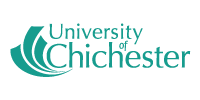Sport and Exercise Psychology MSc - British Psychological Society Accredited
The Masters in Sport and Exercise Psychology is accredited by the British Psychological Society (BPS) and is a one-year full time (with part time routes available) programme of study designed for graduates with the British Psychological Society's Graduate Basis for Chartership (GBC) seeking to develop specialist knowledge in Sport and Exercise Psychology.
The British Psychological Society (BPS) has developed procedures for the accreditation of suitably experienced individuals that stipulate the possession of a relevant form of postgraduate qualification. The MSc in Sport and Exercise Psychology is the first stage (of two) of practitioner training for Chartered Sport and Exercise Psycholog…
There are no frequently asked questions yet. If you have any more questions or need help, contact our customer service.
The Masters in Sport and Exercise Psychology is accredited by the British Psychological Society (BPS) and is a one-year full time (with part time routes available) programme of study designed for graduates with the British Psychological Society's Graduate Basis for Chartership (GBC) seeking to develop specialist knowledge in Sport and Exercise Psychology.
The British Psychological Society (BPS) has developed procedures for the accreditation of suitably experienced individuals that stipulate the possession of a relevant form of postgraduate qualification. The MSc in Sport and Exercise Psychology is the first stage (of two) of practitioner training for Chartered Sport and Exercise Psychologists (CPsychol). As of July 2012, any professional who wishes to practice under the title of Sport and Exercise Psychologist, will need to be registered with the Health Professions Council (HPC). Stage one and two practitioner training as developed by the BPS meet the requirements of the HPC.
The field of Sport and Exercise Psychology in the UK has evolved rapidly in the last decade to reflect the increased interest in sporting excellence and physical activity for health and wellbeing. Sport and exercise psychology graduates can be found working in a range of sport and health sectors (e.g., teaching in further and higher education and English Institute of Sport, National Governing Bodies, National Health Service and local government). Within Sport (from amateur to elite), psychologists provide support and psychological skills training to athletes to help them meet the demands of training and competition. In addition they can be found working with coaches and officials, advising on leadership, group dynamics and communication skills. In the health sector, physical activity is now recognised as an effective intervention for a range of health and social issues. Opportunities now exist for exercise specialists to work in cardiac rehabilitation, diabetes, cancer and obesity support. Wider employment exists within the business sector and local government in areas of health promotion, employee wellbeing and project evaluation.
Through studying a range of modules students will develop their knowledge and critical appraisal of sport and exercise psychology theory, research and application.
Indicative Course Content
All students are required to complete four modules in their chosen pathway plus the two modules in research methods and statistics and a research dissertation.
Modules currently available are:
- Sport Psychology
- Psychology of Exercise and Health
- Sport Psychology Intervention
- Professional Practice in Sport & Exercise Psychology
- Research Methods and Statistics I
- Research Methods and Statistics II
- The Research Dissertation
- Independent Study Module
Assessment
To gain a Postgraduate Certificate in Sport and Exercise Psychology, students need to complete three modules. Each module is assessed by the equivalent of a 4,000-word assignment.
To gain a Postgraduate Diploma in Sport and Exercise Psychology, students need to complete six modules. Each module is assessed by the equivalent of a 4,000-word assignment.
To gain an MSc in Sport and Exercise Psychology students need to complete six modules, and a dissertation of 12,000 words.
Attendance
The course runs from September to August.
Part time: One day per week for a minimum of two years.
Full time: 12 to 15 months
For further details on how to apply please visit: http://www.chi.ac.uk/courses/postgraduate-taught-0/how-apply
Home/EU Fees for 2013 academic year
1 Year taught including dissertation £4960.00.
Part time - Module Fee £603.00. Dissertation Fee £1809.00.
There is an Alumni Discount of 10% for students applying within five years of completion of an undergraduate course at Chichester.
Overseas Fees for 2013 academic year
Full time only £10,775.00.
There is an Alumni Discount of 10% for students applying within five years of completion of an undergraduate course at Chichester.
NB Please supply the names and contact details of your TWO referees with your application.
Entry Requirements
Candidates require a good honours degree (2:1) which confers the
British Psychological Society’s Graduate Basis for Chartership (GBC
status). To check the suitability of your degree please contact Dr
Ruth Lowry on email: r.lowry@chi.ac.uk.
Students will normally be invited to attend an interview. The
interview will seek to establish the candidate’s ability to
complete the MSc and any potential gaps in knowledge that may
hinder progress. Where such gaps are identified candidates may be
referred to preparatory study prior to the start of the course. All
judgements are based on the expectation that the candidate will be
able to benefit from and successfully complete the
programme.
There are no frequently asked questions yet. If you have any more questions or need help, contact our customer service.
